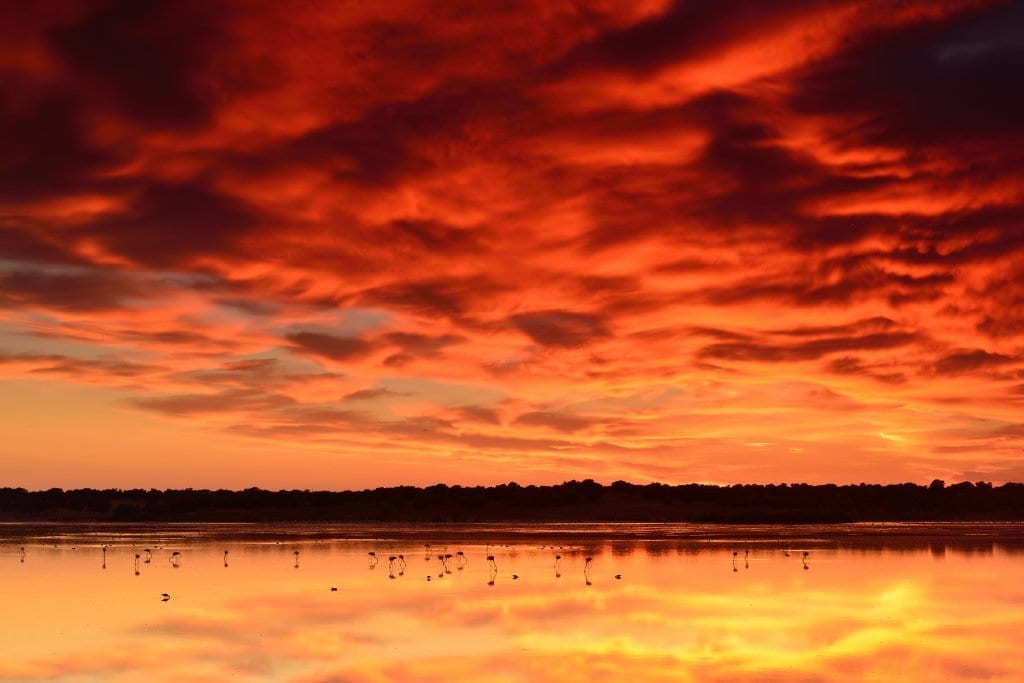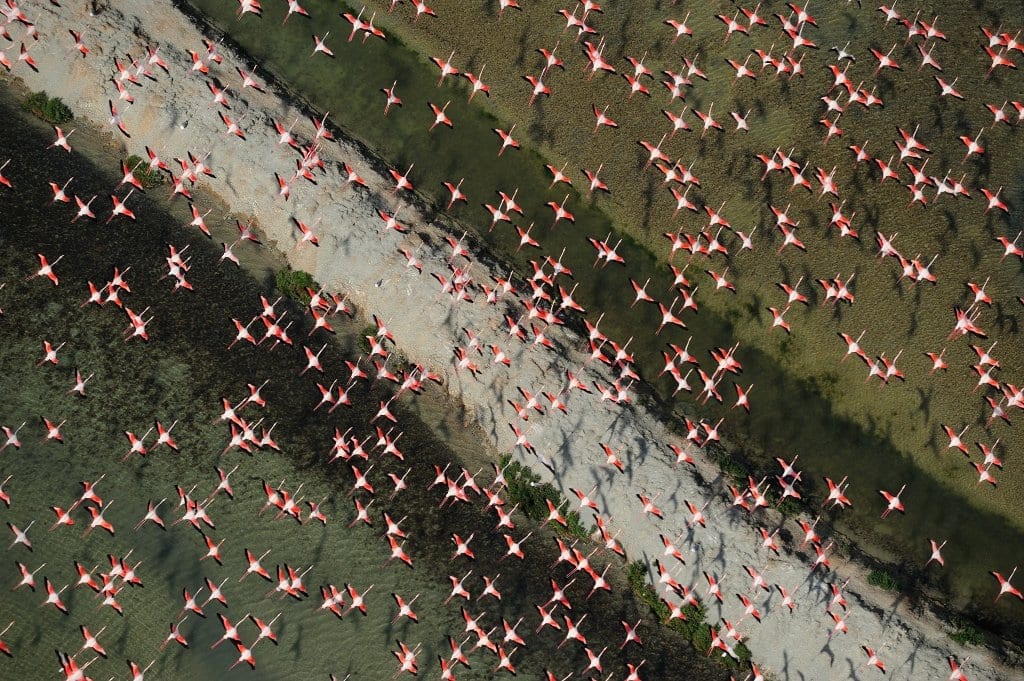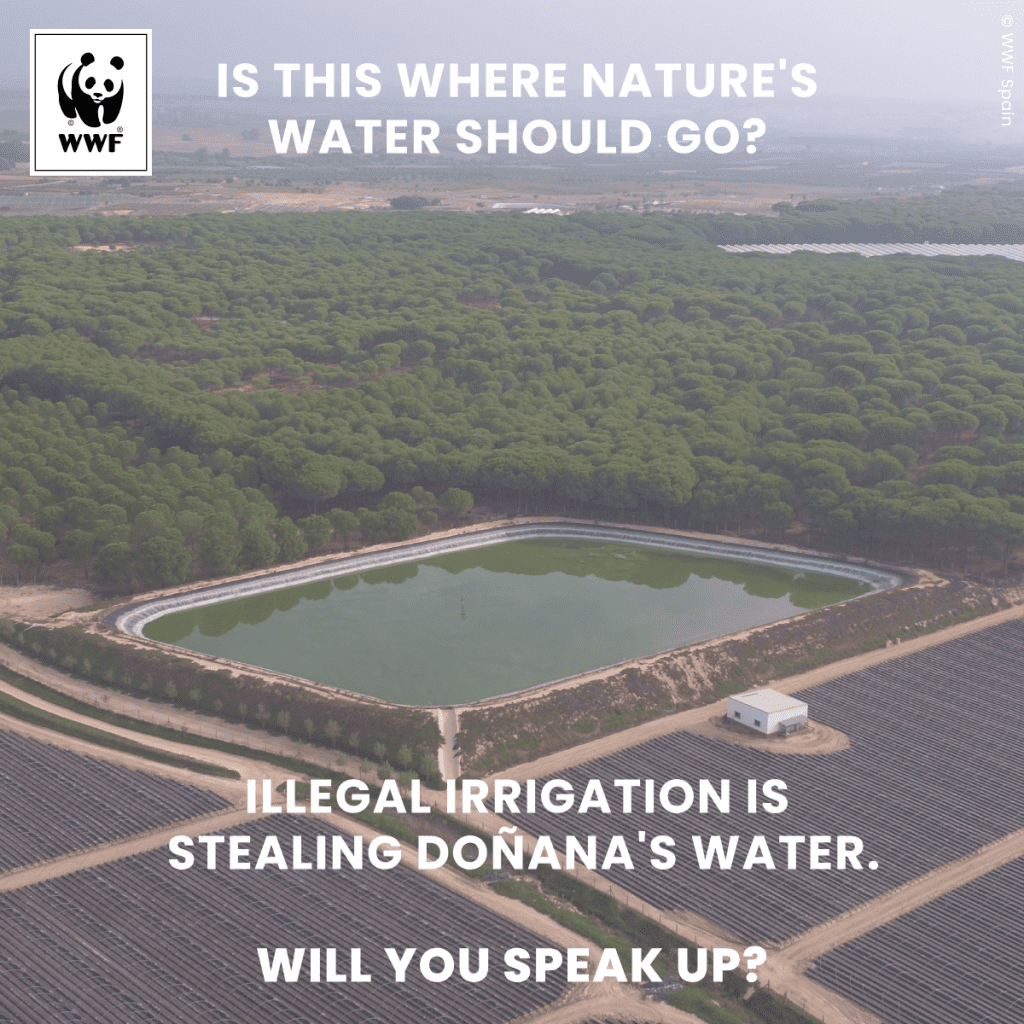Flamingos soaring over shimmering water. The hum of crickets in the scorching heat of an Andalusian summer. An Iberian Lynx nursing its cub in a merciful patch of shade. For anyone who has visited or read of Spain’s iconic Doñana National Park, these are the images that come to mind.

But the underlying reality is dramatically different. Despite being a national park protected under the EU’s water and nature laws, having UNESCO World Heritage and Natura 2000 status, and harbouring one of the most important wetlands in the world, Doñana has been the site of destruction and degradation for the best part of a decade. The wetlands, one of Europe’s most important pit-stops for migratory birds, are being annihilated by aggressive, unsustainable and, in the majority of cases, illegal irrigation.
And all for the intensive production of strawberries and other red fruits, which require a lot of water to thrive.
For more than ten years, WWF Spain has carried out extensive monitoring, which has yielded a mountain of damning evidence that Doñana’s aquifer (the underground layer of water-bearing permeable rock that feeds the wetlands with water) is being bled dry by unsustainable agriculture. So far, WWF Spain has identified there to be at least 1,000 illegal wells scattered throughout the park and more than 3,000 hectares of illegal crops of strawberries and red fruits (such as raspberries, blueberries and blackberries) that are monopolising Doñana’s most precious resource.

Even more shocking than the blatant degradation of Doñana has been the lack of action by the government of Spain. For years, the pleas of civil society to stop the destruction of Doñana has fallen on deaf ears.
In the hope that someone would listen and stand up for Doñana, in April 2010, WWF Spain filed a complaint to the European Commission, which denounced the destructive and unsustainable abstraction of water in the Doñana area, and the repeated breaches of EU legislation by the Spanish authorities, the Ministry of Environment, and the Andalusian Government and municipalities. It took almost nine years for the Commission to finally decide in January 2019 to refer Spain to the European Court of Justice (ECJ) over the serious deterioration of the Doñana National Park and for its failure to implement the EU Water Framework Directive and Birds and Habitats Directives.


Whilst there is now a shred of hope for Doñana, Spain’s passivity is just the tip of the iceberg and speaks of an alarming, EU-wide disregard for the value of freshwater ecosystems more broadly. Our continent is a patchwork of Doñanas – stories of countless rivers, lakes, streams and wetlands that each day are being subjected to damming for hydropower, dredging for navigation, and pollution from nitrates, pesticides and hazardous chemicals, and stretched paper thin by aggressive irrigation diverting water to our farmlands.
EU Member States need to take urgent action to protect Europe’s rivers, lakes and wetlands, and to restore those which have already been damaged. We have the tool to do this in the shape of the EU Water Framework Directive (WFD) – one of the EU’s most ambitious and progressive pieces of environmental legislation – but, since the law came into effect in 2000, Member States have relentlessly sidestepped their commitments.
Under this legislation, Member States have committed to ensure no further deterioration of their waters, and to restore those which have already been wrecked so they can achieve “good status”. But, for the best part of two decades, Member States have been doing the bare minimum and refused to use this law to its full potential. And, now, many EU governments are colluding to try to destroy many of the WFD’s strong and progressive elements during the Commission’s ongoing review of the legislation.
Our waters and freshwater wildlife cannot last much longer. To combat this push from Member States to weaken the WFD, WWF, together with more than 130 other NGOs, launched the #ProtectWater campaign. The campaign calls on the European Commission to defend the law and asks citizens to express their support throughout the ongoing public consultation on the WFD, with over 300,000 people having already done so.
Europe’s rivers, lakes and wetlands can’t speak up. Will you? Find out more about the #ProtectWater campaign: www.livingrivers.eu/